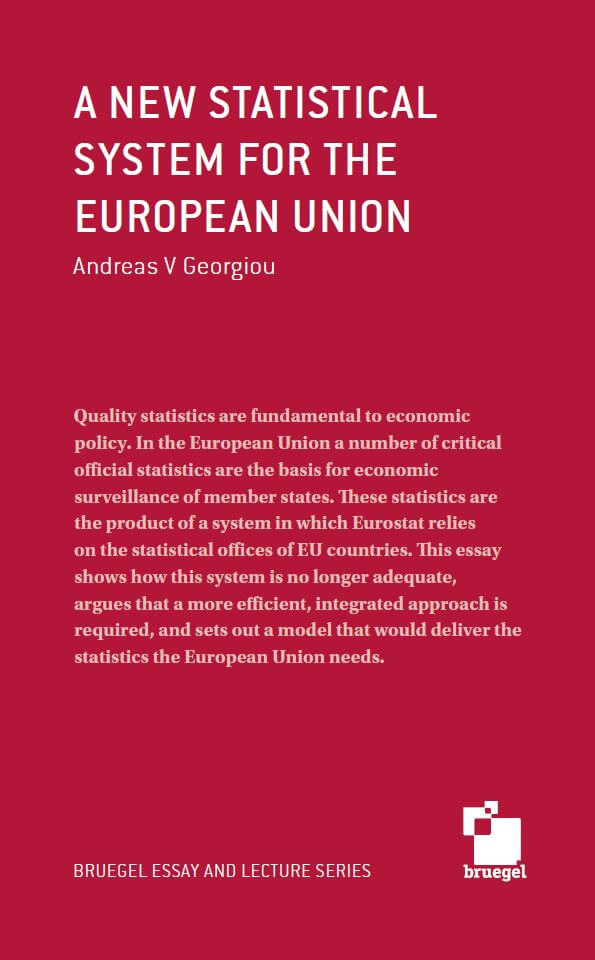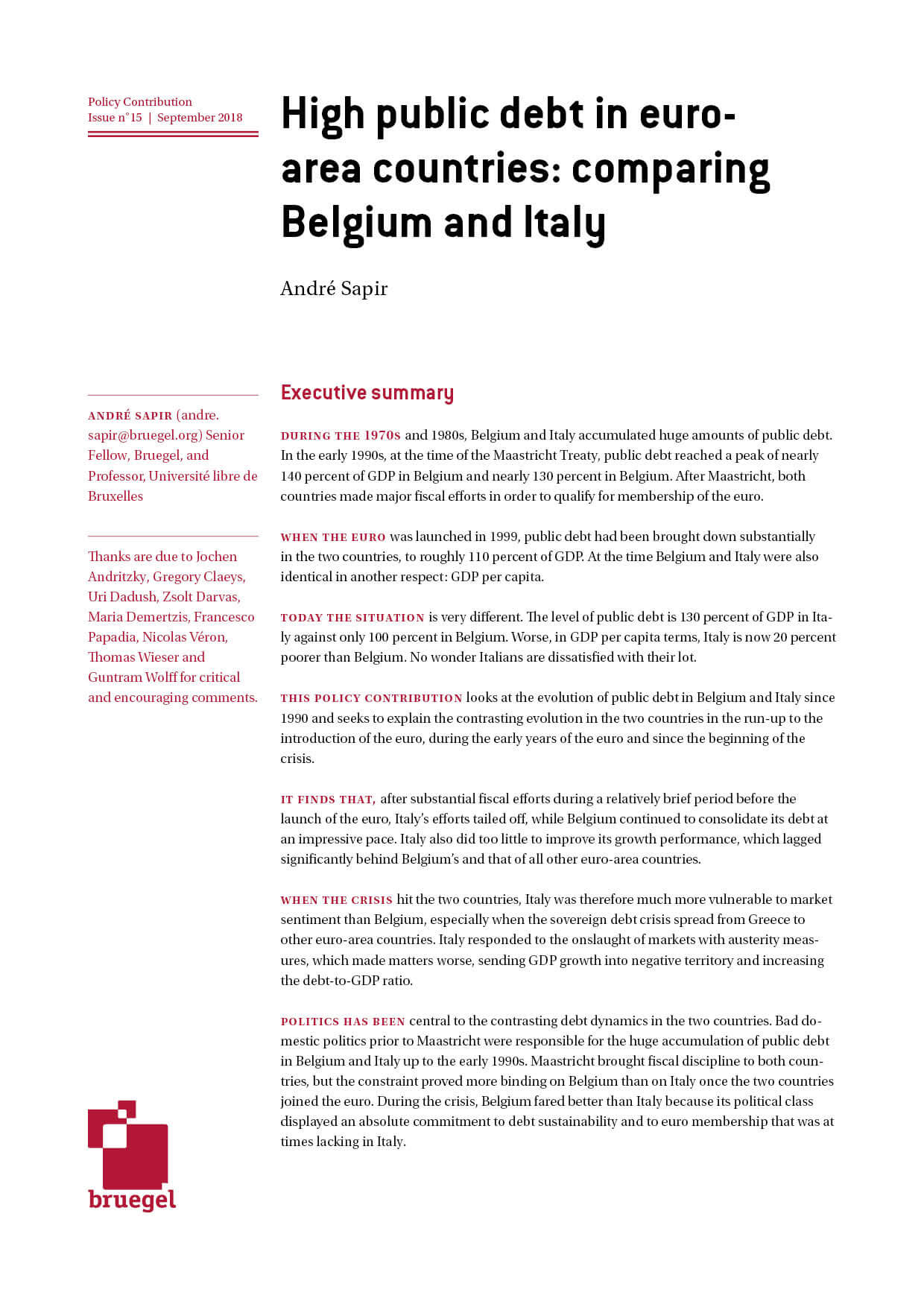Opinion
Greece: a European tragedy
Wrapped up in the details of pension reforms and home foreclosure—matters that, no doubt, have important consequences for many— the big picture has faded into the background. It is easy to forget how we got here, and where we are going.
This op-ed was originally published in Kathimerini.

From 2009 to 2015, the Greek government’s primary deficit (deficit not counting interest payments) declined from 10 percent of GDP to nearly zero. Greece ran a 10 percent of GDP current account deficit with the rest of the world; now the balance shows a surplus. Compare the numbers with Ireland, Portugal, and Spain, or compare them with the historical record of reducing deficits: Greece has delivered as much, or more.
But the austerity was much harsher for Greece. Public spending was pushed down by about 25 percent, an order of magnitude more than in the other countries. This caused GDP and tax revenues to collapse. The perverse consequence was a soaring public debt ratio, which rose from 145 percent of GDP in 2009 to 200 percent of GDP. Simply put, Greece was pushed to run much harder and fell further behind.
Greece’s creditors now want more austerity. Because, once again, growth projections are absurdly optimistic, the debt burden could escalate uncontrollably, leading to calls for more austerity in a never-ending cycle.
Twice in the last year—when they voted Syriza to power in December 2014 and in July 2015 when they rejected the creditors’ deal—the Greek people pleaded that this calamity be stopped. But with the threat of blowing Greece up, the creditors powered on.
From 1981, when it joined the European Union, the Greek economy grew by expanding the Greek state. Europe was supposed to anchor democracy and foster prosperity. Instead, corruption and entitlement became entrenched. With the incentives so deeply embedded, each change in government only reshuffled the individuals enjoying state patronage. Both Europe and Greece failed.
The creditors now wish to convey that they are pushing to redeem themselves and Greece. But real change—to create a new growth model for Greece and unravel the corrupt networks—will take years. In the meanwhile, asking Greece for further fiscal consolidation of 3½ percent of GDP over the next three years is stunning economic illiteracy, more so because one of the creditors—the International Monetary Fund—has intellectually discredited this policy. By itself, such austerity could cause GDP to contract by 7 percent. Plus, prices will decline, making household and business debt harder to repay, further undermining growth and public finances. The creditors’ projections show a miraculous resumption of growth. Miracles do happen, but are not customarily invoked for economic projections.
The creditors’ obsession with Greek pensions as too high—even if true—is somewhat beside the point. Pensions are important in sustaining the livelihoods of vulnerable families. And it is not just a warm and fuzzy regard for social equity and justice that is at stake. The scale of reduction proposed, along with all the other austerity measures, will have immediate macroeconomic consequences. As consumption declines, so will growth and prices. Greece’s debt-deflation cycle will continue. Higher private and public debt burdens will further undermine the banking system.
Make no mistake, deeper economic distress cannot cure long-term economic pathologies, just as heavy-lifting is not recommended to revive a patient from cardiac arrest. The long-term damage will be far-reaching. For a start, the most talented are leaving in droves. Greece’s weak growth prospects will only become worse.
We can look down the passage of time and see a Greece that is older, where the scientists and doctors and entrepreneurs have left and many of those left behind have no place else to go. With unending economic struggle, Greece will likely be more nationalistic, marginalized from the international community except when its borders become meaningful.
Greece has a nearly balanced primary budget. A three-year freeze on austerity will allow resumption of growth. An agenda to lower and rationalize pensions then would make more sense. But Greece also needs deep debt relief. The coy promises of driblets of relief are intended as a clever tactic for dragging Greek authorities down the road of needed reform. But if such reform undermines growth, the needed debt relief will increase with time. Greece will become a permanent ward of the creditors. The Greeks will suffer more pain and the creditors will see less of their money.
The great danger now is that a Europe confronted by much larger challenges relegates Greece to a side-show. The creditors, knowing they cannot push too hard, nevertheless stick to their unworkable strategy. Greek authorities, with nowhere else to look, engage on those terms. A slow-motion war of attrition between the two sides leads to a little noticed, but deepening tragedy—for Greece and for Europe.
Republishing and referencing
Bruegel considers itself a public good and takes no institutional standpoint.
Due to copyright agreements we ask that you kindly email request to republish opinions that have appeared in print to [email protected].








